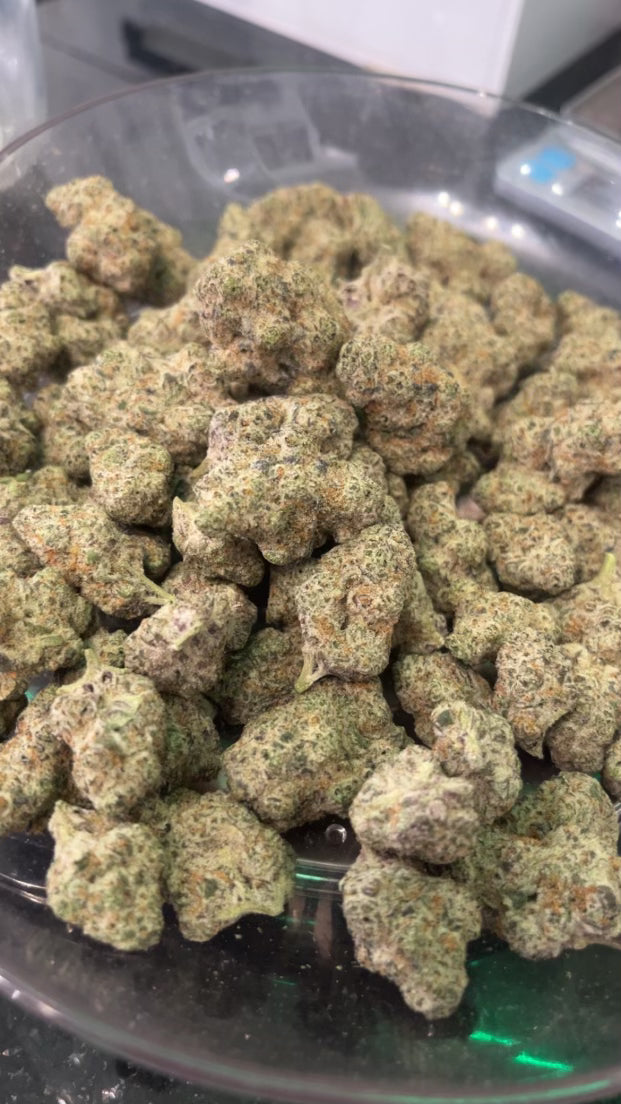
THCA vs CBD: What’s the Deal?
When it comes to cannabis, THCA and CBD are two of the most talked-about cannabinoids. You might have heard of them, but do you really know what they do? Both are non-psychoactive, meaning they won’t give you that "high," but each one brings its own set of potential benefits. If you're thinking about using cannabis for wellness, it’s important to understand what makes these two compounds different so you can choose the right one for your needs.
THCA (Tetrahydrocannabinolic Acid) is kind of like THC’s younger sibling. THCA is found in raw, unheated cannabis, and it doesn’t cause any psychoactive effects by itself. That changes when you heat it—like when you smoke or vape—which turns it into THC, the compound responsible for that classic cannabis high. But if you keep it raw, THCA may offer some interesting benefits, such as reducing inflammation or possibly helping with neurodegenerative diseases, without any psychoactive side effects.
CBD (Cannabidiol) is the superstar of the cannabis world right now, especially in wellness circles. Unlike THCA, CBD is good to go straight out of the plant, no heating required. It’s known for its potential to help with anxiety, chronic pain, and even some neurological disorders. What’s cool about CBD is that it interacts with your body’s endocannabinoid system in a way that promotes balance, without making you feel "high" or out of it.
The Key Differences
THCA’s Unique Profile: THCA has a specific chemical structure that includes a carboxylic acid group. This structure means that it won’t bind to the brain’s CB1 receptors, which are responsible for the psychoactive effects of THC. Instead, THCA is being studied for other potential effects, like reducing inflammation and offering neuroprotection. It’s still early days, but people are getting excited about its possibilities in treating things like arthritis and Parkinson’s disease.
CBD’s Versatility: CBD is like the Swiss Army knife of cannabinoids. It works in multiple ways, mostly by influencing the endocannabinoid system, which regulates a bunch of things in your body, like mood, pain, and immune response. What’s really interesting is how CBD can interact with various receptor sites in your body, potentially reducing anxiety, pain, and even seizure activity. And because it’s non-psychoactive, people are using it for everything from stress relief to skincare.
How to Choose Between THCA and CBD
Deciding between THCA and CBD really depends on what you're looking for. If you’re dealing with inflammation or want something that won’t ever turn into THC, THCA might be your best bet. It’s particularly interesting for those who prefer raw cannabis products or are looking into the potential therapeutic benefits of cannabinoids without the psychoactive effects.
On the flip side, if you’re more concerned with managing anxiety, pain, or seizures, CBD could be a better fit. It’s been widely researched and is available in a variety of forms, from oils and tinctures to edibles and topicals. Plus, CBD is legally accessible in many places, even where cannabis isn’t fully legal, which makes it easier to try out.
Quick FAQs
-
What’s THCA good for? THCA is believed to have anti-inflammatory and neuroprotective properties, which might make it helpful for conditions like arthritis, lupus, or multiple sclerosis.
-
Is CBD or THCA better for pain? It really depends on your body. Some people find CBD to be more effective for pain management, while others prefer THCA for its potential anti-inflammatory effects. It’s worth experimenting to see what works best for you.
-
Can THCA flower get you high? Only if you heat it up. THCA converts to THC when exposed to heat, so if you smoke or vape it, you’ll get the psychoactive effects associated with THC.
-
How can I use THCA? THCA is most commonly consumed in its raw form, often through juicing fresh cannabis leaves or adding it to smoothies. It can also be found in tinctures and other products designed to preserve its raw state.
Both THCA and CBD offer unique benefits, and the best way to find out which one is right for you is through personal experimentation. Cannabis affects everyone differently, so what works for someone else might not work the same way for you. Always consider consulting with a healthcare provider to help you navigate your options and find the best fit for your needs.



